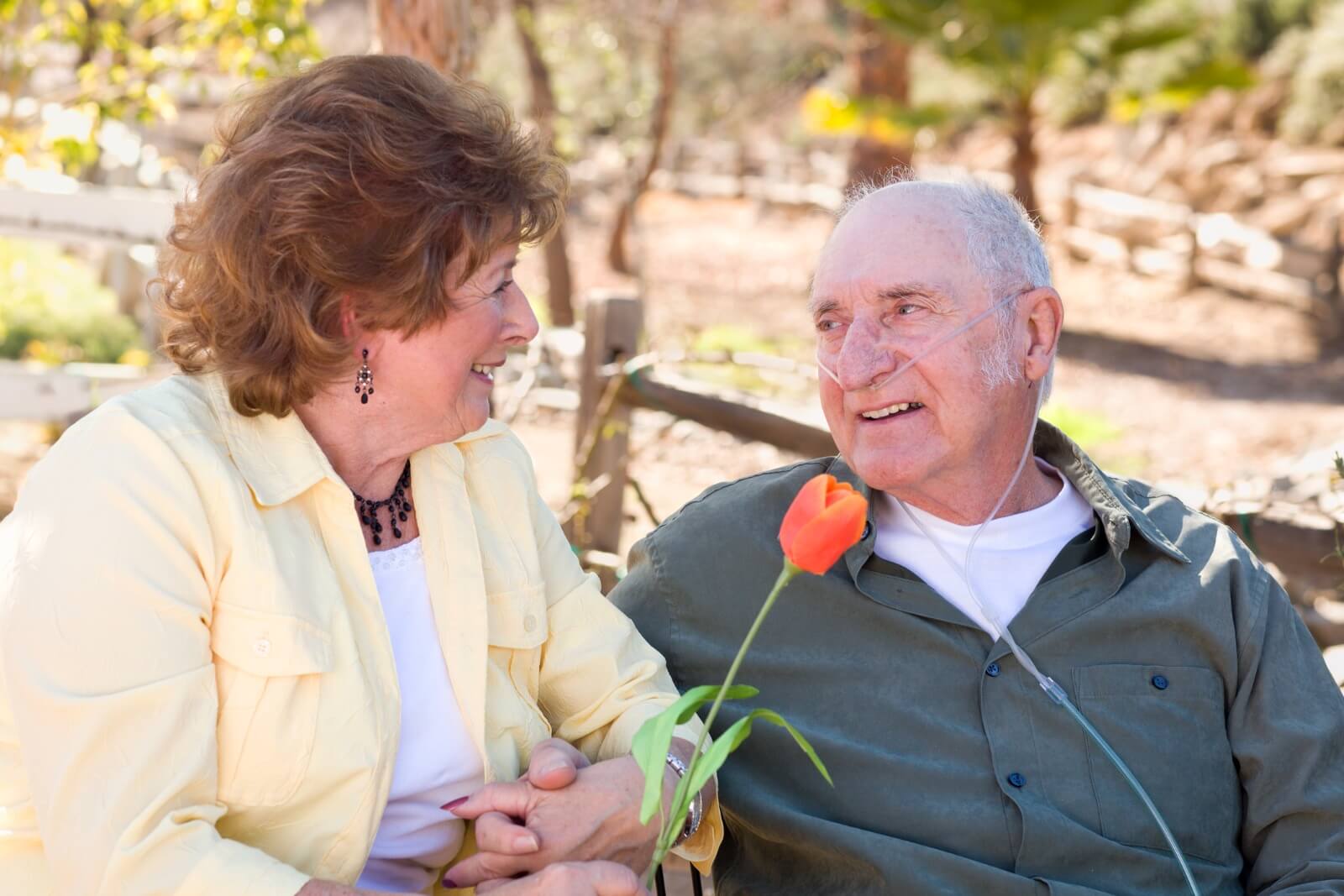
Anyone who has cared for someone with dementia knows that they tend to have good days and bad days and ups and downs in mood and behavior that can change by the hour. Often, you can see your loved one falling into recognizable behavior patterns. One widely noticed pattern is a phenomenon called sundowning, or late-day confusion, a tendency for older adults with dementia to become more confused and unsettled when it gets dark. In this article, we will explain this phenomenon and its possible causes and offer ways to help an older adult with sundowning symptoms.
What is sundowning?
Sundowning is a set of behaviors commonly seen in people with Alzheimer’s and dementia. The fading daylight of evening seems to bring on an intensification of the effects of the disease. Your loved one may become more disoriented, restless, irritable, depressed, or frustrated. They may become demanding and suspicious, start pacing and wandering, or even yell and scream. In some cases, they might become paranoid and have visual and auditory hallucinations.
What causes sundowning?
It’s still not known exactly what triggers these behaviors, but there are several theories that could lead us to a better understanding and practical ways to help with sundowning.
Most research has focused on the disruption of the circadian rhythm as a possible cause of sundowning. The circadian rhythm is the 24-hour cycle that controls our activity level throughout the day and regulates biological functions such as core body temperature, heart rate, and digestion. This cycle is regulated by an internal biological clock located in the brain, which controls the body through the secretion of hormones like melatonin.
When this process breaks down, our bodies are thrown out of sync with the time of day. Our sleep-wake cycle is disrupted, and our biological functions lose coordination. In a person with dementia, this disruption could feel very disorienting and adversely affect cognition and mood, leading to the behaviors of sundown syndrome.
Researchers have considered other possible triggers for sundowners such as fatigue, chronic pain, and digestion issues that can sometimes worsen in the evening. Side effects from prescription drugs or effects as drugs wear off in the evening could be another factor. Some behaviors could be brought on by unrelated conditions such as a urinary tract infection, restless leg syndrome, or sleep apnea.
Helping a loved one manage sundowning symptoms
We’re going to explore a few ideas that can help with sundowning and make a big difference in your loved one’s well-being while making things a little easier on you as their caregiver.
Melatonin
Many experts recommend melatonin supplements to treat sundowning. Melatonin is a hormone produced naturally by the body. It’s secreted when it gets dark and signals the body to wind down, bringing on the feeling of sleepiness. If the circadian rhythm becomes disrupted, the hormone may be released at the wrong time. Taking melatonin could help mitigate this issue and restore a more synchronized rhythm. Melatonin is also known to be a powerful antioxidant, and there is some emerging evidence that it could slow the progression of early-stage Alzheimer’s by fighting the buildup of amyloid plaques in the brain.
Melatonin is available without a prescription in the U.S., but it’s still important to consult a doctor before trying it.
Activity and exercise
People with Alzheimer’s and dementia tend to have lives that blur the lines between wakefulness and sleep. They are often restless at night, getting poor, fragmented sleep, and are not fully awake and active in the daytime, taking frequent naps. This might explain why they sometimes feel on edge at sundown, dreading another long, lonely night of interrupted sleep.
Getting regular physical exercise, preferably early in the day, and engaging in some form of mental stimulation can make a big difference. It can help with sundowning by allowing them to get better sleep at night, improving cognition, and making for more relaxed evenings.
Increased exposure to sunlight
Most elders with dementia get inadequate exposure to sunlight. Since the body’s internal clock uses light to synchronize itself to the day-night cycle, this lack of sunlight can cause a disrupted circadian rhythm, which could be an element behind many cases of sundowning. There is some evidence that sundowning gets worse in the shortened days of fall and winter when we get less sunlight. Exposure to light also encourages the production of serotonin, an important mood-regulating neurotransmitter.
Try to ensure your loved one spends time outdoors on a regular basis. Take short walks if possible. Make sure they have the curtains open and the blinds up in the house during daylight. If getting outside frequently isn’t possible, bright light therapy such as a light box could help.
A consistent, predictable schedule
A stable daily routine is highly beneficial to older adults with Alzheimer’s and dementia who may struggle to understand the world around them. Constant changes and unpredictability can be very distressing. Eating meals at the same time every day, maintaining consistent bedtimes and wake-up times, and participating in planned activities provide structure and reassurance.
A relaxing evening environment
Try to make your loved one’s nighttime environment as stress-free as possible. Here are some ways to promote calmness:
- Avoid overstimulation and minimize loud noises and clutter in their bedroom.
- Be careful about what you watch on TV. Seniors with dementia who are prone to sundowning often react intensely to depictions of violence or anything with disturbing or frightening situations.
- Keep the lights inside the house relatively bright to eliminate dark areas or shadows. Dementia can cause changes in the way the brain processes visual information, and shadows can actually be very alarming to them, sometimes triggering hallucinations.
- If your loved one seems agitated, you might try listening to music they enjoy, soothing nature sounds, or even white noise.
- Acupressure and aromatherapy can also help promote relaxation.
- Having a light snack might provide relief from agitation.
- Talking about happy memories or looking at old pictures is a good way to help with sundowning.
Good sleep at night and less daytime napping
Do everything you can to promote good sleep. Make sure their bedroom is a comfortable, relaxing place. Encourage them to go to bed and get up in the morning at the same time every day. Try to reduce daytime napping, especially late in the day, so they will be tired when they go to bed.
Final thoughts on helping a loved one with sundowning
Caring for an older adult with Alzheimer’s or dementia is challenging, and knowing how to deal with the behavioral changes associated with the disease can be even more difficult. Although dementia presents several issues that may be distressing or even dangerous, the methods listed above can help your loved one manage sundowning symptoms and ensure their mental and physical well-being.








